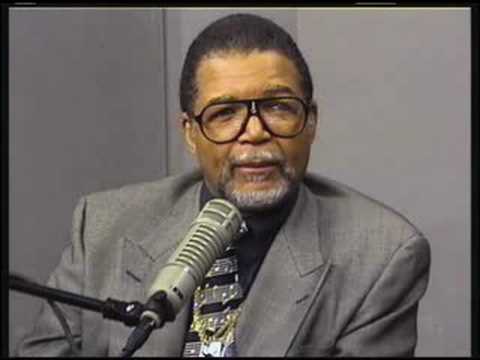Music can be “a metaphysics based on the cooperation between what we know and what we don’t.”
6 parts
1. https://www.youtube.com/watch?v=r5AG97vlG 4w
2. https://www.youtube.com/watch?v=crH5CXr8Q C8
3. https://www.youtube.com/watch?v=oZHF-QkMS HE
4. https://www.youtube.com/watch?v=u0DEcvpdQ uM
5. https://www.youtube.com/watch?v=1BpNdFtaS RI
6. https://www.youtube.com/watch?v=aJ7y4Lehz hA
Jazz Composer and Performer Dr. Nelson Harrison explains the metaphysics of music. Music can be “a metaphysics based on the cooperation between what we know and what we don’t.” Dr. Harrison holds a Ph. D. in Clinical Psychology, and has toured as a trombonist with the Count Basie Orchestra. He also holds a Bachelor’s Degree in Zoology. Host is Pittsburgh Theosophical Society President Andy Nesky.
===
Dr. Nelson Harrison is a notable figure in the jazz world, not only for his contributions as a composer and performer but also for his intellectual engagement with the genre. He has been known to explore the deeper, more philosophical aspects of jazz, including its metaphysical dimensions. Harrison’s approach to jazz is multifaceted, examining its cultural, spiritual, and metaphysical implications and how these elements influence the creation, performance, and perception of jazz music.
The Metaphysics of Jazz
While I don’t have specific details on Harrison’s explanations of the metaphysics of jazz, the concept itself can be broadly understood within the context of how jazz functions as a form of expression that transcends the purely physical aspects of music. Metaphysics, in a general sense, deals with questions of existence, reality, and the nature of the universe. When applied to jazz, it might explore themes such as:
- Improvisation as a Metaphysical Act: Jazz is renowned for its emphasis on improvisation, a process that can be seen as a spontaneous creation within a moment, transcending time and planned structure. This can be viewed as a metaphysical exploration of creativity and consciousness, where the musician becomes a conduit for something greater than themselves.
- Connection and Communication: Jazz often involves a deep level of communication and interplay between musicians, which some might interpret as a metaphysical connection. This aspect of jazz can be seen as an exploration of human relationships and the unseen ways in which we connect with each other.
- Spirituality: Jazz has roots in African American spirituals and the blues, genres deeply connected to the spiritual and the transcendent. Many jazz musicians have explored spiritual themes in their work, seeing the act of playing jazz as a spiritual practice that connects them to a higher reality.
- Cultural Transcendence: Jazz’s ability to transcend cultural and national boundaries, creating a universal language of emotion and expression, can also be seen as a metaphysical quality. It challenges the physical limitations of geography and ethnicity, uniting people across the world through a shared experience of music.
Dr. Nelson Harrison, with his deep understanding of jazz history, culture, and theory, likely approaches the metaphysics of jazz by considering these and other aspects. His work might explore how jazz, as an art form, provides insights into the nature of reality, creativity, and human connection, offering a unique lens through which to view the broader questions of existence.
Contributions to Jazz and Beyond
Dr. Harrison’s contributions to the jazz world extend beyond his performances and compositions. His intellectual exploration of the genre, including its metaphysical aspects, enriches our understanding of jazz not just as music but as a significant cultural, spiritual, and philosophical phenomenon. His insights help illuminate the deeper layers of jazz, offering a richer appreciation of its impact on both individuals and society.
